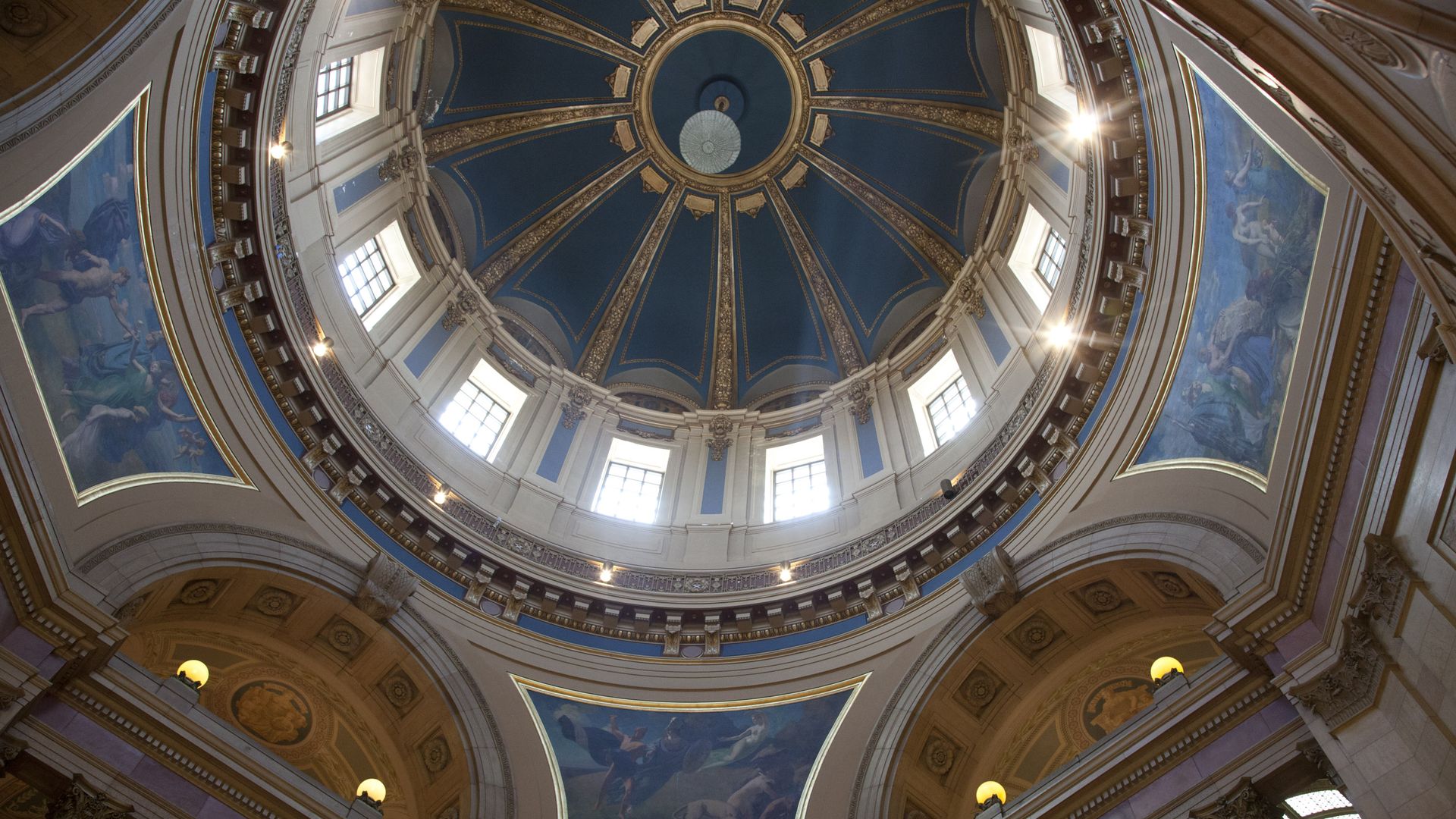The surplus is set: Here's what it means for Minnesota's budget
Add Axios as your preferred source to
see more of our stories on Google.

Photographer: Ariana Lindquist/Bloomberg via Getty Images
The budget debate at the Minnesota State Capitol is about to heat up.
Why it matters: While Gov. Tim Walz and DFL legislative leaders are aligned on many overarching policy goals — like more money for schools — the devil is in the details.
- And those details will need to be worked out in the coming months, ahead of a summer deadline for balancing the next two-year budget.
Driving the news: A new economic forecast showing that the state's projected surplus remains relatively stable at $17.5 billion gives lawmakers the numbers they need to finalize the state budget.
The big picture: Lawmakers have $12.5 billion left over to use for one-time spending — think rebates, capital projects and seed cash to start new programs — plus an estimated $60 billion for the two-year budget that begins in July.
What we're watching: Legislators still aren't sold on Walz's proposal to give a piece of the surplus back to taxpayers in the form of rebate checks.
- Speaker Melissa Hortman (DFL-Brooklyn PArk) said Monday that while she expects tax cuts, it's still "too early to say" whether Walz's checks will make the package.
- But she said there is support in her caucus for targeted relief aimed at reducing child poverty.
Plus: While Walz and other leaders oppose a total repeal of state taxes on Social Security income — they've argued for relief up until a certain income point instead — some newly elected DFL senators have pledged to make full elimination a priority.
- Senate Leader Kari Dziedzic (DFL-Minneapolis) said Monday that conversations within her caucus are continuing.
Of note: When asked about proposed increases to taxes on capital gains, vehicle tabs and park entry fees, Walz indicated that he's open to discussion.
The big picture: The state's finances are in strong shape, Minnesota Department of Management and Budget commissioner Jim Schowalter said, with revenues expected to outpace spending through fiscal year 2027.
Between the lines: While tax revenues continue to exceed expectations, a dynamic that would typically cause the record surplus to grow, a new law directing state budget officials to take inflation into account when they estimate future spending washed out those gains.
What's next: Leaders are expected to release budget targets breaking down how much committee chairs can expect to spend on different areas in the coming weeks.
